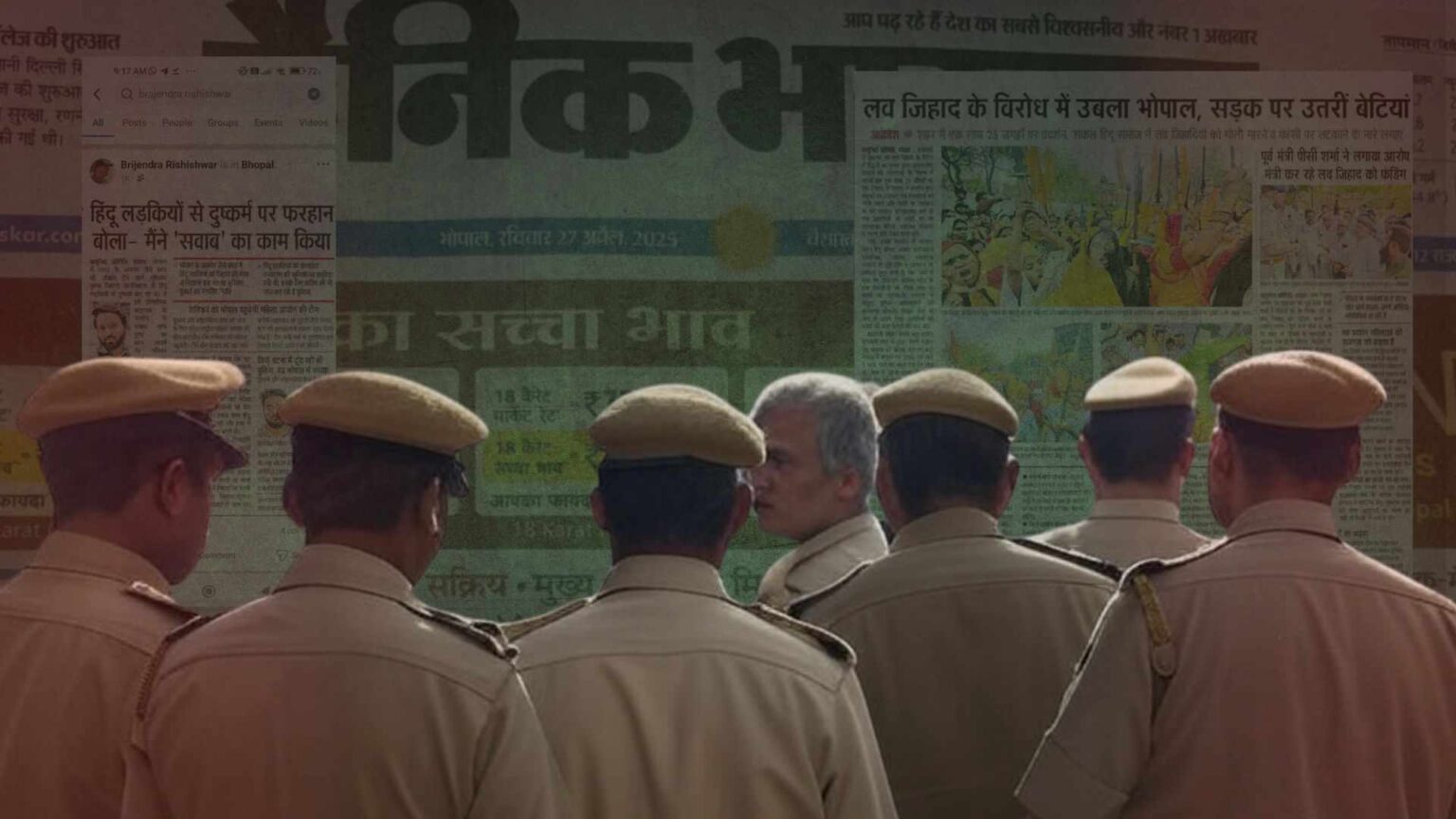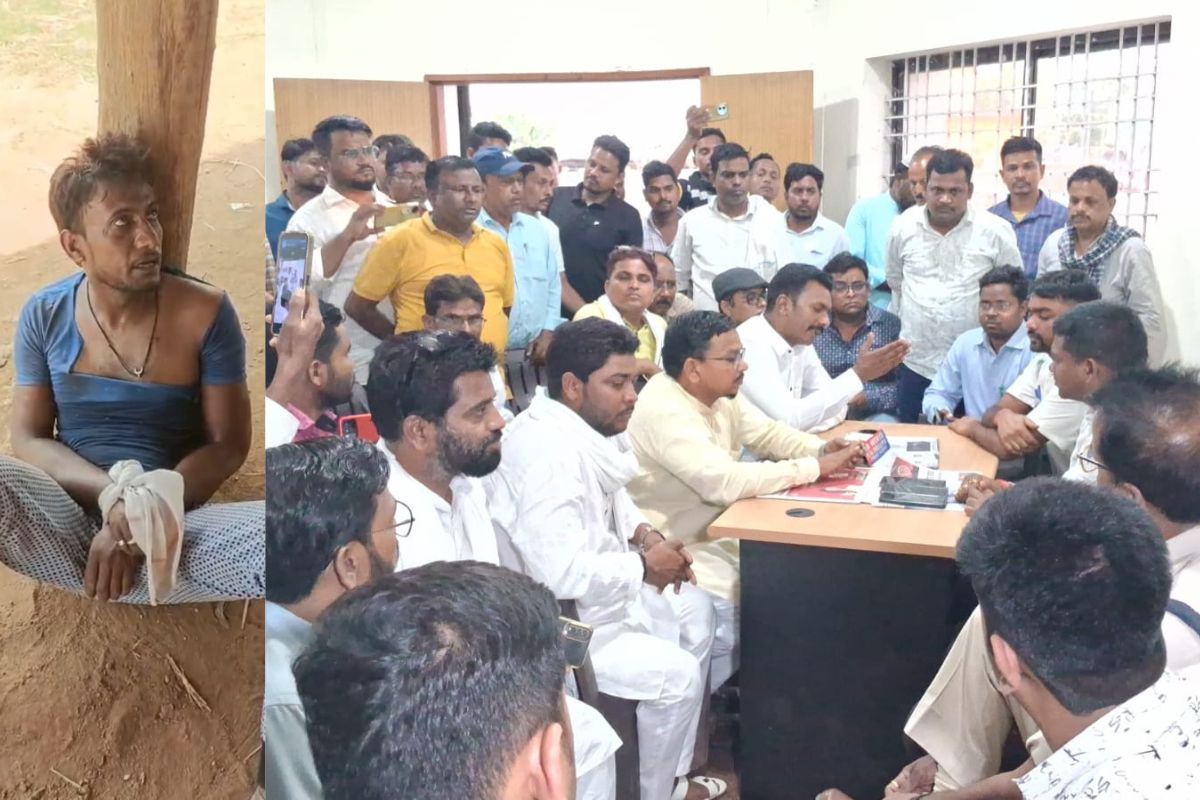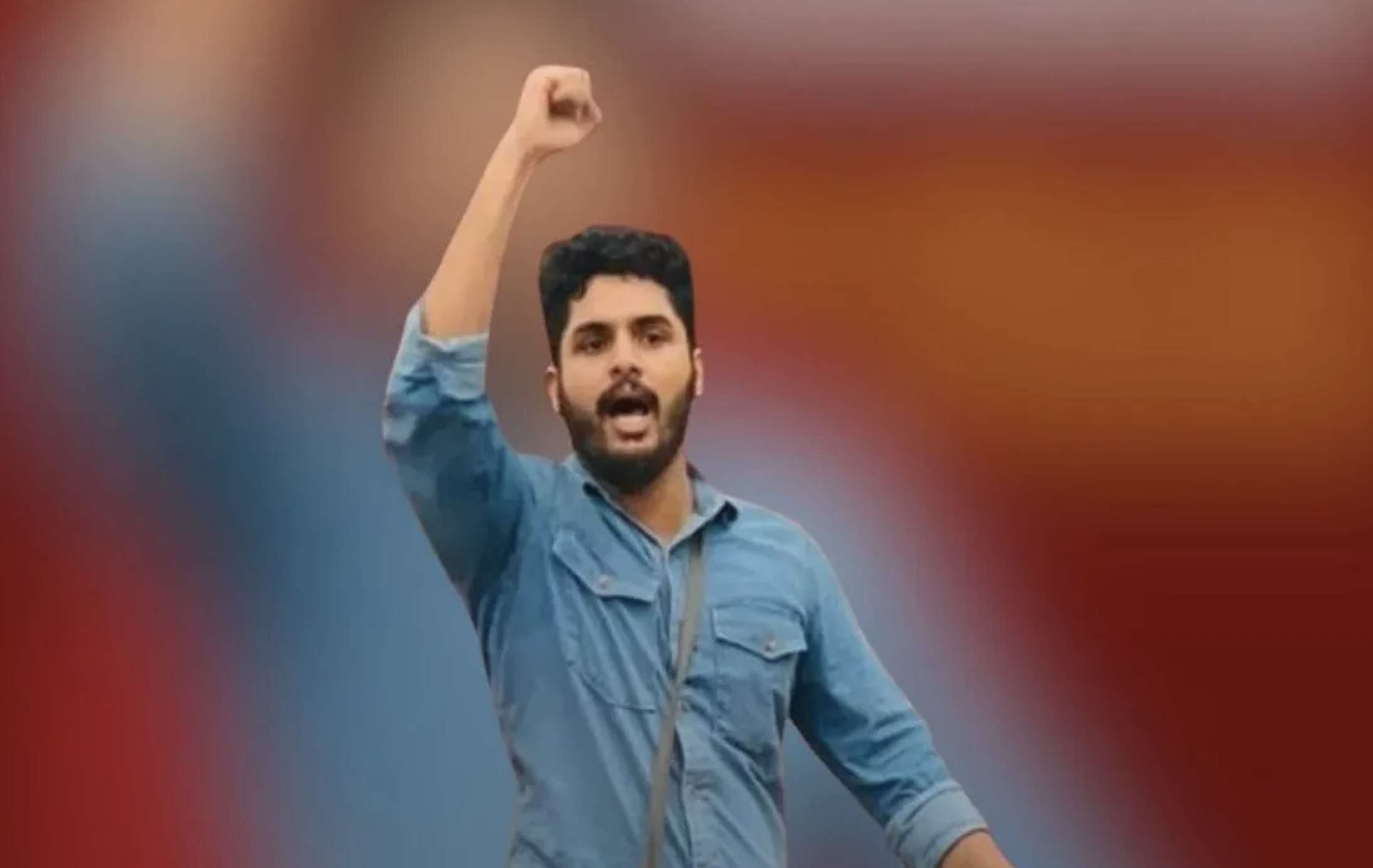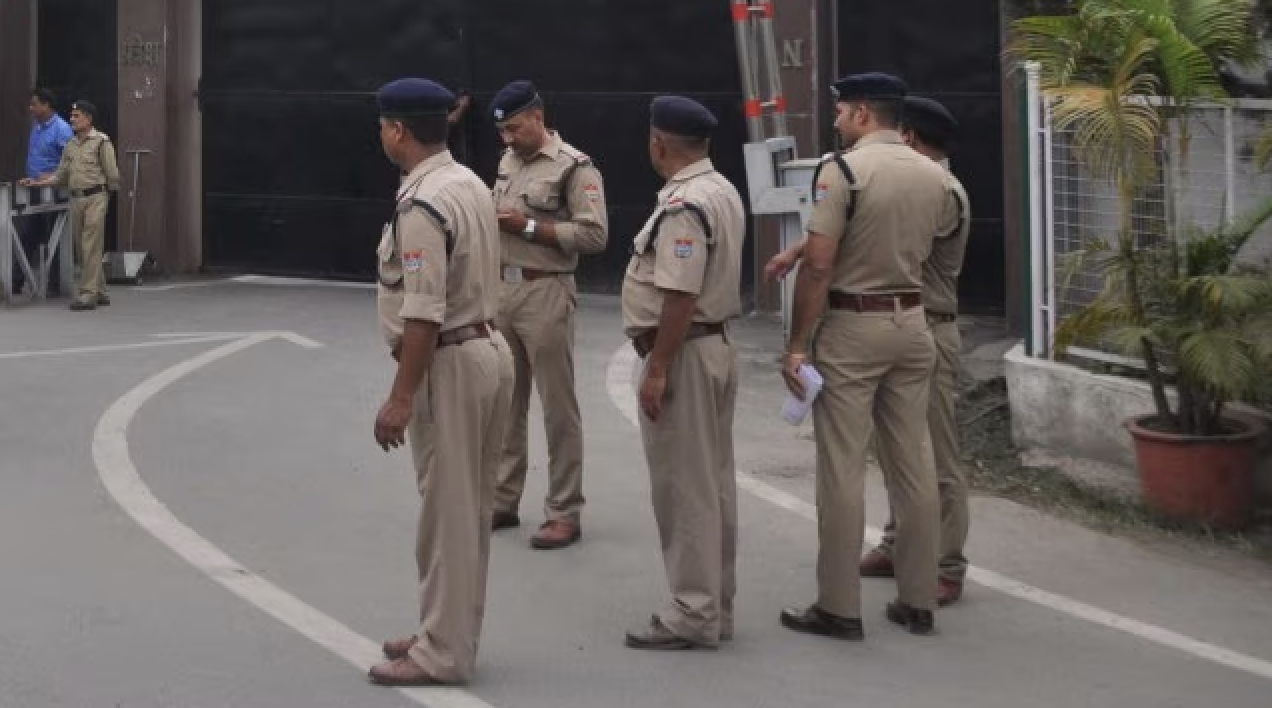
In April 2018, a large group of policemen arrived at the Delhi flat of Rona Wilson, a 47-year-old human rights activist. They had travelled from Pune in the western state of Maharashtra, and appeared, accompanied by Delhi police officials, at Wilson’s single-room flat at 6am. For the next eight hours, they scoured the modest premises, searching the files on Wilson’s laptop and rifling through his books. Annoyed and short of sleep, he asked that they be put back in place after they had been scrutinised. When the police eventually left, they took away Wilson’s Hewlett-Packard laptop, a SanDisk thumb drive and his mobile phone.
Seven weeks later, the police were back at Wilson’s flat, this time to arrest him. He was accused of conspiring to assassinate the prime minister, Narendra Modi, and planning to overthrow the ruling Bharatiya Janata Party (BJP) government. Evidence of these crimes had allegedly been found on his laptop. Wilson was flown to Pune, charged under India’s anti-terror law and incarcerated. More than three years after the arrest, he remains in prison.
Wilson, who appeared in press photographs with flowing, shoulder-length hair, squeezed between two plainclothes policemen on the backseat of an unmarked van, seems an unlikely candidate for violent conspiracy. A Malayalam-speaking Christian who grew up in the southern state of Kerala, Wilson’s life in Delhi had been wholly devoted to campaigning on behalf of political prisoners. He made visits to inmates in Tihar jail, India’s largest prison, to lawyers’ offices to help with campaigns for their release, and to dozens of media organisations in the centre of New Delhi to raise awareness of the plight of those he believed had been falsely incarcerated.
Just before his arrest, Wilson had applied to the PhD programme in political science at Surrey University, and was hoping to leave for the UK if he managed to get a scholarship. The documentary film-maker Sanjay Kak, who has known Wilson for nearly two decades and worked with him on campaigns for the release of political prisoners, described him as completely devoted to the cause. “Rona in many ways exemplifies an Indian kind of activist – quiet, self-effacing and yet deeply committed to what they do,” he said. “The tragedy of what has happened to him is that he has been drawn in by the very machine he worked so hard to dismantle all his life.”
Wilson is one of 16 people arrested since June 2018 for their part in an alleged Maoist conspiracy to foment an uprising against Modi’s government. The origin of this so-called conspiracy was traced to a festival called the Elgaar Parishad (meaning “loud assembly”) held in Pune on 31 December 2017. Organised by two progressive retired judges, the festival was looking ahead to the 200th anniversary of a famous Dalit victory in the nearby village of Bhima Koregaon in 1818, when historically oppressed Dalit soldiers serving in a British regiment defeated an upper-caste Hindu army.
During the festival, speakers criticised the ruling BJP and the Rashtriya Swayamsevak Sangh (RSS), often described as its paramilitary branch, for their promotion of a Hindu majoritarian state and for their attempts to subvert India’s constitution, which upholds the principles of religious and ethnic equality. The next day, 1 January 2018, clashes broke out as Dalits converging upon Bhima Koregaon were beaten and pelted with stones by mobs waving the distinctive saffron flags of the Hindu right. One man was killed in the riots, and property was smashed and burned.
Although those initially accused of instigating the violence were two local men with longstanding links to the Hindu right, the investigation quickly altered course. By April, the focus of police inquiries had become a convoluted plot involving “urban Naxals” – a catchphrase popularised by the Hindu right for activists and intellectuals with progressive leanings – operating as a front for underground Maoist groups and inciting Dalits to rise up against the government. This alleged incitement to insurrection was named the Bhima Koregaon conspiracy.
There are thousands of political detainees currently held in India’s prisons, but more than any other mass arrest, the Bhima Koregaon case shows the way Modi’s government cracks down on criticism of its Hindu nationalist ideology and disguises its harsh repression as part of a war on terror.
Wilson had been nowhere near the Elgaar Parishad event. In fact, he was not even in Maharashtra at the time. According to his legal team, he was in Delhi. After the raid on his flat, the police, however, claimed that an analysis of Wilson’s computer and thumb drive had revealed several incriminating documents, including a letter in which Wilson had written about “targeting” Modi’s “road-shows” in “another Rajiv Gandhi type incident” – a reference to the assassination of India’s former prime minister by a Tamil Tiger suicide bomber in 1991.
On 8 June 2018, the day the police arrested Wilson in Delhi, they also took in four other activists in different parts of India who had allegedly worked with Wilson on the conspiracy. Like Wilson, the other detainees – Surendra Gadling (53), a Dalit lawyer; Sudhir Dhawale (52), a Dalit writer; Shoma Sen (63), a feminist literature professor, and Mahesh Raut (34), a land rights activist – had no record of violence.
Their activism, often challenging the excesses of the state and Hindu-right organisations, was a matter of public record, carried out largely in courts, panels, rallies and press conferences. The government nevertheless extended its net further over the following two years, arresting people in Hyderabad, Delhi and Ranchi, until by October 2020 the total number of those detained had risen to 16.
Known to activists and the media as the BK 16, the detainees included Anand Teltumbde (71), a Dalit public intellectual who is married to the granddaughter of BR Ambedkar, the Dalit architect of the Indian constitution; Sudha Bhardwaj (59), a Boston-born lawyer who represented workers and indigenous people in central India; and Stan Swamy, an octogenarian activist and Jesuit priest suffering from Parkinson’s. Swamy, arrested last October, was denied bail by a judge who refused to accept that his health was precarious. He contracted Covid while in prison and died on 5 July this year, which prompted widespread global condemnation and yet drew no response from Modi.
Wilson remains in Taloja men’s prison in Mumbai, as do most of his fellow accused. Fourteen of the BK 16 have been denied bail. The only exceptions are the 81-year-old poet and activist Varavara Rao, who tested positive for Covid-19 last year, and who will return to prison when his six-month bail comes to an end this month; and Gadling, who has been given one week’s bail, starting next week, to perform rites for his mother on the first anniversary of her death.
Mihir Desai, a lawyer representing the BK 16, described their long incarceration without trial as characteristic of India’s draconian anti-terror law, the Unlawful Activities Prevention Act (UAPA), which makes getting bail almost impossible. Once the trial begins, it could take anything from five to 10 years. “Most of them have been in jail for three years already, and the trial is a long way away,” Desai said with some weariness. “The prosecution claims that it has 200 witnesses. Just imagine how long it will take to question them all.”
The government’s case against the BK 16 is notable both for its sheer size – apart from 200 witnesses, the charges filed against the BK 16 run to a total of 17,000 pages – as well as the seemingly outlandish nature of the plot it claims to have uncovered. In the electronic communications allegedly found by the investigation and leaked to a compliant mainstream media, Wilson and his co-accused freely address one another by their first names while discussing plans to acquire arms and ammunition for the assassination of the prime minister, and forming an “anti-fascist front” as a prelude to an uprising.
The charge sheets filed by the police and the federal anti-terror body, the National Investigation Agency (NIA), are filled with wild, unproven, and possibly unprovable, assertions. “In order to further activities of CPI (Maoist) on an international level,” reads the charge against Teltumbde, “he used to attend international conferences under the guise of his academic visits at Canada, Pakistan, the USA, France etc. In the said conferences, he used to exchange literature on ideology, training and working strategy of CPI (Maoist) with international communist organizations.” The charge sheets and evidence list include bewildering diagrams titled Mobile Connectivity Chart and Email Connectivity Chart, a photocopy of Marx for Beginners, and a “book with cover picture of lady wearing white colour sari with written thereon in English words as ‘Accused INDIAN ARMY’”.
Further evidence comes from an assortment of computers, mobile phones, cameras, sim cards and thumb drives seized from the accused. But the information discovered on these electronic devices is dubious, and not just because of the suspiciously bad writing and transparent scheming on display in the emails allegedly exchanged between Wilson and “Comrade Prakash” (supposedly the code name for an underground militant).
Alarmed by the suspect nature of the arrests and charges, activists and lawyers working to free the BK 16 got in touch with the human rights section of the American Bar Association. The ABA looked into the judicial records in the case and, in a preliminary report in October 2019, found that they raised “serious concerns of procedural irregularities, abuse of process and violations of fundamental human rights”. Through the ABA, Wilson’s lawyers approached a US-based digital forensics firm, Arsenal Consulting, to dig further into the case.
In July 2020, a hard drive from Mumbai containing cloned copies of Wilson’s laptop and thumb drives arrived at Arsenal’s office in Massachusetts. In February 2021, Arsenal presented its initial findings in the first of a series of reports on the BK 16. “We had sent it to them thinking that evidence might have been planted on the devices by the police after the raid,” a member of the defence said. But Arsenal’s findings astonished them. They appeared to show that incriminating documents had been planted on computers belonging to the accused in a clandestine operation dating back years before the alleged role of the BK 16 in the Bhima Koregaon riots.
Studying clones of the laptop and thumb drive seized by the police from Wilson, Arsenal came to the conclusion that hackers had planted malware on Wilson’s laptop 22 months before the police showed up on his doorstep. Through a series of emails to Wilson purportedly from the account of Varavara Rao, the poet, the attacker got Wilson to open what he thought was a Dropbox link, but was actually a link to what the Arsenal report identified as a “malicious command and control server”. Once the malware was installed, the hacker deposited 32 incriminating documents – including the letter discussing the assassination of Modi – on Wilson’s laptop over a period of nearly a year. Throughout, according to Arsenal’s analysts, the attacker was able to control Wilson’s laptop, conceal the fact that incriminating documents had been planted, and spy on Wilson “browsing websites, submitting passwords, composing emails, and editing documents”.
Before Arsenal’s reports, other organisations had discovered that associates of the BK 16 were being targeted. An investigation by Citizen Lab Canada found that between February and May 2019, the phones of Teltumbde, who had not been arrested at that point, as well as more than 20 people connected to the BK 16, had been targeted by the military-grade Pegasus spyware sold to governments by the Israeli firm NSO. In September and October that year, a study by a digital division of Amnesty International showed that many of the same people were sent a series of emails containing malware.
In July 2021, the Guardian and a consortium of news organisations revealed that Pegasus spyware had been used by a number of repressive governments around the world to spy on human rights defenders, activists and journalists. Modi’s government was said to be among those using Pegasus, and it was reportedly found to be targeting opposition politicians, journalists and activists in India. Among potential targets were, it was claimed, eight of the BK 16, including Rona Wilson.
The NIA has dismissed Arsenal’s findings, saying the company has “no locus standi to give opinion”, and noting that the Indian government’s own forensics lab discovered no malware on Wilson’s devices. Mark Spencer, president of Arsenal, said in response: “Arsenal digital forensics reports are extremely detailed, thorough and clear – they speak for themselves.” When the Washington Post contacted three different digital forensics experts in the US with Arsenal’s first report, all three stated that Arsenal’s findings were “sound”. These findings were also supported by an investigation by the Delhi-based magazine Caravan, which had examined a copy of Wilson’s hard drive in March 2020 and discovered malware pointing to “manipulation of evidence” in the case against the BK16.
Arsenal uses a forensic technique that can accurately identify the date documents were uploaded. They were convinced that the planting of malware and incriminating documents on Wilson’s devices were not isolated events. They say that the attacker who had infected Wilson’s devices with the incriminating documents had also been targeting Wilson’s co-accused in the BK 16 for more than four years.
An expert who chose to remain anonymous but who is extremely familiar with Arsenal’s investigations – detailed across three reports, the latest of them released in July 2021 – described the attacks as revealing “a massive infrastructure” involving “layers of bogus accounts used by the attackers, many different kinds of malware, different ‘crypters’, compiling source code just prior to launching attacks, compromising email accounts to deploy malware in some situations, and using email forgery services”.
Taken together, this suggests that behind the alleged Bhima Koregaon conspiracy there is another conspiracy – one that originates from entities whose interests coincide entirely with Modi and his Hindu right government.
The cascade of events that started with a peaceful gathering and ended with the round-up of the BK 16 under the anti-terror act reveals a chillingly familiar picture of repression throughout Modi’s India, one that follows a well established pattern of turning victims into perpetrators by manipulating the legal system.
In January 2020 a new law, the Citizenship Amendment Act (CAA), came into effect. It threatened to discriminate against Muslims and strip them of their rights as Indian nationals. Thousands of protesters took to the streets of Delhi – not just Muslims, but a cross-section of people who had come together in solidarity. On 23 February, a wave of violence broke out in the city when the protesters were attacked by thugs of the Hindu right and the Delhi police. By the time the riots ended, 53 people had died in the clashes, two-thirds of whom were Muslim.
A report by The Caravan magazine in September 2020 detailed the state’s shocking complicity in the violence. Like the Dalit commemoration in Bhima Koregaon two years before, the protests had started out as peaceful gatherings. Yet Hindu right leaders portrayed the protesters as aggressive, ignorant Muslims opposing rights for Hindus, instigating violence that eventually turned into large-scale rioting.
After the violence came the conspiracy theories. On 11 March 2020, an organisation calling itself the Group of Intellectuals and Academicians – a group with no known intellectual or academic credentials, but with close links to the Hindu right – submitted a report to the government suggesting that the violence in Delhi had been the work of that bogeyman of the right, the Urban Naxal-Jihadi network. Soon a series of arrests began, focusing not on the widely documented perpetrators of the violence and those who had goaded them on, but on protesters.
As with the BK16, the instrument used to go after the protesters was the anti-terror law. Although the Unlawful Activities Prevention Act (UAPA) was first passed in 1967 and was updated in 2008 by the Congress government, Modi has seized upon it with vigour to pursue opponents of his Hindu nationalist movement. In the four years after Modi became prime minister, cases brought under the act almost doubled, to 5,102. In July 2019, shortly after Modi was reelected, the act was further revised to allow the government to designate any individual as a terrorist without having to establish their membership or association with any banned organisations.
On 16 May 2020, Asif Iqbal Tanha (25), a member of a group that had been at the forefront of protests against the CAA, was arrested at his flat in Jamia Nagar in south-east Delhi. After he was allowed out on bail, in June, I spoke to him in the apartment of a fellow activist. Sitting in a room with a table holding at least 50 bulky folders – copies of the anti-terror charges against protesters – Tanha described how he had been accused of buying a sim card with false documents and passing the sim card on to another protester.
“I’ve never been to the mobile phone shop they accused me of visiting, never met the man they said I bought the sim card from, and never had a sim card other than the one in my phone, which the police had seized more than a month before they decided to arrest me,” Tanha told me. He said he had nevertheless been subjected to a bewildering sequence of charges, interrogations, arrests and court appearances. Held overnight at the office of the Delhi police special cell – an anti-terror division notorious for torture and extra-judicial executions – and then incarcerated in Tihar jail, he had been beaten by special cell officers, he said: “Seven or eight people punched and kicked me. Finally, I was left alone but with a bright halogen light on my eyes all night long. When I was moved to Tihar, I was again assaulted by officials as well as by prisoners who accused me of being a jihadi.”
Civil rights campaigner Nadeem Khan described the crackdown on anti CAA protests. “Nearly 400 people, mostly poor Muslim students, were called in for interrogation and pressured to turn witnesses for the government in their conspiracy case. I myself was called in twice,” he said. “They wanted to send a message to everyone who had challenged them, and they used the terror act because it allows you to send the harshest of messages, which is that you must remain silent in the face of all oppression.”
It was a message that had been made abundantly clear in the case of the BK 16. After the rioting in Bhima Koregaon, rumours of a leftist conspiracy began with a complaint, filed by a local businessman, alleging that the violence had been instigated by Maoists speaking at the Elgaar Parishad. A similar accusation was made in a report produced by the Forum for Integrated National Security, an obscure thinktank composed of former military officials and headed by Seshadri Chari, an RSS man who is also a member of the BJP’s national executive committee. By April 2018, the police investigations had become entirely focused on this so-called conspiracy, via a series of raids and interrogations. By June, the first group of activists, including Rona Wilson, had been arrested.
In November 2018, the BJP lost the state elections in Maharashtra. The new coalition government of Maharashtra, following information that the BK 16 investigation had been mishandled, announced its intention to open an inquiry into the case. The case was rapidly transferred to the NIA by the central government, to which the NIA reports, burying any chance of an inquiry. The NIA is headed by YC Modi (no relation), a police officer who was in charge of investigations into Narendra Modi’s role in the Gujarat riots when he was chief minister of the state. The panels headed by YC Modi found Modi innocent of any wrongdoing.
With the NIA now handling the Bhima Koregaon investigations, another round of arrests began. Among those detained were Gautam Navlakha (68), a journalist and civil rights activist, and Anand Teltumbde. Hany Babu (55), a Muslim professor at Delhi University who campaigns for the rights of political prisoners, was arrested. Sagar Gorkhe (34), Ramesh Gaichor (37) and Jyoti Jagtap (33), members of a Maharashtra-based Dalit cultural group, were also detained without bail. The conditions of their detention have aroused much concern for their safety, especially with the indifferent response of Modi’s government to the Covid-19 pandemic, including to the virulent Delta variant, which was first discovered in Maharashtra.
At the height of the first wave of the pandemic, on 8 October 2020, police barged into the one-room home of 83-year-old Stan Swamy in the eastern Indian city of Ranchi and took him into custody. Frail and shaking, unable to drink from a glass because of Parkinson’s, Swamy had to appeal to the court after his arrest for a straw and a sipper cup. The request took nearly two months to be approved. Denied bail by a judge who argued that Swamy’s “alleged sickness” was outweighed by “the collective interest of the community”, Swamy was subsequently moved to a church-run hospital in May last year after complaining of Covid-19 symptoms. He remained there, under custody, until he died this July.
Swamy’s loss was widely mourned. “I knew him for over 20 years,” Father Joseph Xavier, a Jesuit priest, told me, “and to the very end, his idea of freedom was not just a matter of getting bail from the courts but to be among the indigenous people he admired, fought for and worked with all his life.”
A further six of the BK 16 have tested positive for Covid-19 in jail. “There are 3,000 prisoners in Taloja and not a single doctor,” Jenny Rowena, Hany Babu’s partner, told me. “All they have are three ayurvedic specialists, unqualified in western medicine, who prescribe drugs.” Conditions are equally bad for the three being held at Byculla women’s prison – Sudha Bhardwaj, who was born in the US but gave up her American citizenship so that she could work in India as a labour activist and human rights lawyer; Shoma Sen, the literature professor, who is a Dalit and women’s rights activist; and Jyoti Jagtap, the Dalit singer and activist, who was arrested by the police at a traffic light while riding to work on a motorcycle. Both groups are subject to the petty cruelties and vindictiveness rife in the prison system, with arbitrary denials of medical care, proper food, sanitary conditions, reading matter, or contact with family members and lawyers.
Shalini Gera, a colleague of Bhardwaj’s and one of her legal defence team, described to me how Bhardwaj and Sen, as political prisoners, were kept in solitary cells on death row in Pune. They were allowed into a small yard for exercise, but never together. Both Bhardwaj and Sen had been attacked by mentally disturbed inmates on death row, Gera said. After Bhardwaj appealed to the courts to be allowed more than two books a month, for a while the distribution of books to prisoners had been stopped altogether.
Intimidation of those involved in the case extends beyond the prisons. Gera told me of her surprise on learning from Citizen Lab Canada, in October 2019, while she was working on Bhardwaj’s defence, that her own WhatsApp account had been targeted by Pegasus. “Like most activists in India, I had always assumed that most of my emails, texts, phone calls were insecure, like everybody else’s. It took some time for it to actually sink in that this was some highly sophisticated surveillance … and some VERY expensive software!!!” she told me via text message.
Neither the Pegasus findings nor the global outcry after Swamy’s death has done anything to change the intimidation, surveillance and fear of entrapment experienced by the BK16 or their supporters. A judge who expressed sadness at Swamy’s death was rebuked by the NIA for affecting the morale of its officers; the judge apologised and withdrew his comments.
“All institutions have lost credibility,” said Suchitra Vijayan, a New York-based writer and barrister who had been following the protests while travelling in India. “The silencing of critical voices is a core component of an authoritarian regime and that is what we can see going on here, accompanied by institutional erosion. Earlier, they never went after lawyers, but they do now. The police in India have a long history of planting evidence, but now it is done with sophisticated technology that has immense resources behind it. The judiciary has become complicit.”
Across India, vital democratic norms are being eroded. “You should come to Uttar Pradesh and see how many people have been locked up there under sedition charges,” the civil rights campaigner Nadeem Khan told me. There is a range of laws, some of them dating back to the colonial era, supplying the government with a massive toolkit of repression. When Kashmir erupted in protests after Modi unilaterally revoked its notionally autonomous status in August 2019, more than 5,000 people were imprisoned, many of them booked under a public order law specific to Kashmir.
The UAPA, however, has become the government’s most valuable weapon, allowing it to suspend most fundamental rights while preserving the appearance of legality, and it is increasingly applied everywhere there is opposition to Modi. In Kashmir, there were 255 cases brought under the terror act by the end of 2019, the third-highest number among Indian states. In the north-eastern state of Assam, Akhil Gogoi, a worker and peasant leader opposed to the Hindu right, was arrested on terror charges in December 2019. (Gogoi contested state elections from prison this May and won; he was released this July, the charges against him dismissed.) In August 2020, Siddique Kappan, a Muslim journalist from Kerala, was arrested under the UAPA in Uttar Pradesh while trying to report on the rape and murder of a 19-year-old Dalit woman. In the central Indian state of Chhattisgarh, Hidme Markam, an indigenous anti-mining activist, was arrested under the terror law this March while attending an International Women’s Day event commemorating indigenous women who have been victims of state violence.
“The NIA and police are not really concerned with evidence when it comes to the UAPA,” Desai told me, “but with keeping people behind bars as long as possible. It is common for police to produce redacted witness statements, where details of the witnesses are withheld. Under UAPA, there is no way to discuss evidence during application for bail. That can happen only during the trial, and, as everyone can see, it takes years to get there.”
Anti-terror laws that preceded the UAPA, brutal in their own ways, nevertheless contained the provision of compensation in case of false imprisonment; with UAPA, there is none. It is possible to file a civil suit for wrongful imprisonment, Desai said, but such trials can take more than a decade in India. Most victims, like two Muslim men who were released this June for lack of evidence after spending nine years in prison, were too afraid of being imprisoned again on false charges to risk seeking compensation in a civil suit.
If the case of the BK 16 stands out from India’s vast ranks of political prisoners, it is for the vision of India it reveals. The case of the BK 16 is not merely the Hindu right’s response to the assertion of Dalit rights around the anniversary at Bhima Koregaon. It is about the Modi government seizing the opportunity to put some very troublesome opponents behind bars, people it had long ago identified as a threat because of their commitment to civil rights and equality.
The arrests had been planned and prepared for by the establishment of a massive project of surveillance, entrapment and incarceration. That project is still alive, still picking its way stealthily through the devices of other people who have chosen to stand up against Modi’s violently authoritarian version of India.
This story first appeared on theguardian.com






